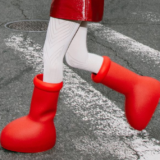Clothes Minded
Two-Thirds of Fashion Shoppers Want More Transparency About Garment Provenance
A new report by Avery Dennison, a global materials science and digital identification solutions company, has found that two-thirds of fashion shoppers worldwide want more transparency when it comes to the provenance of their garments. The Digital Consumer Behaviour report, produced in partnership with audience insights company GWI, surveyed over 6,300 clothing shoppers in seven countries to examine consumer attitudes and behaviours.
The report found that over half of consumers surveyed find Virtual Reality (VR) experiences, triggered by scanning garment labels, interesting. In addition, six out of 10 fashion shoppers globally consider scanning a QR code to understand proper garment care a valuable tool, which in turn increases the clothing’s longevity.
The study also revealed an overall increase in comfort levels towards digital triggers on garments compared to the previous year’s report. The adoption of VR experiences and non-fungible tokens (NFTs) has grown, particularly among fashion consumers. Over half of respondents globally (51 percent) showed interest in creating a digital inventory of their wardrobe, which would be beneficial for those interested in utilising secondary marketplaces.
The report also highlighted that the pandemic has increased openness to buying second-hand fashion, with buyers in Mexico (60 percent), the U.S. (50 percent), and Europe (50 percent) the most open to it.
According to Michael Colarossi, vice president of innovation, product line management, and sustainability, Apparel Solutions at Avery Dennison, these findings demonstrate that consumers expect smart digital solutions that enhance their shopping experience and facilitate conscious decisions such as resale and recycling. Chase Buckle, vice president of trends at GWI, said a mutually beneficial relationship between in-store and online shopping will be transformative for the industry.






